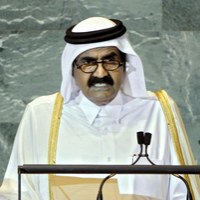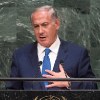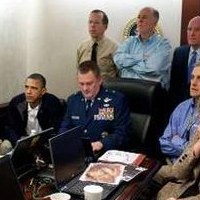![]()
Thu, Sept 22, 2011 | UN TV
FM Zalmai Rassoul Addresses the General Debate of the 66th Session of the General Assembly
Address by His Excellency Zalmai RASSOUL, Minister of Foreign Affairs of the Islamic Republic of Afghanistan at the General debate of the 66th Session of the General Assembly of the United Nations (New York, 21-24 and 26-30 September 2011).
Afghanistan, General Debate, 66th Session
Statement Of
His Excellency Hamid Karzai
President of the Islamic Republic of Afghanistan
At the 66th Session of the
United Nations General Assembly
Delivered by His Excellency Dr. Zalmai Rassoul
Minister of Foreign Affairs of the Islamic Republic of Afghanistan
New York
22 September 2011
Mr. President,
I am honoured to be here to read the statement of my President, His Excellency Hamid Karzai, who had to return from New York to Kabul on an urgent basis, following the tragic assassination, through a terrorist plot, of Afghanistan’s former president and Chairman of the High Peace Council, Professor Burhanuddin Rabbani.
The President’s message begins:
Excellency Secretary General,
Mr. President,
Distinguished delegates; ladies and gentlemen,It is a great honour to address this year’s session of the General Assembly of the United Nations; though I regret that I am unable to do so in person. I was here in New York the day before yesterday and looked forward to attending this important session of the General Assembly. I had to return to Kabul after the tragic news of the martyrdom of former President and Chairman of the Afghan High Peace Council, Professor Burhanuddin Rabbani. He was assassinated in a cowardly terrorist plot by the enemies of peace in our country.
As I speak, the Afghan nation is mourning the loss not only of a valued and deeply respected national figure, but a champion of peace who worked tirelessly, up to the last moment of his distinguished life, for peace in his country. On behalf of the Afghan people, I am grateful for the messages of condolences expressed by leaders around the world for this terrible national loss in Afghanistan.
Mr. President,
As the single largest gathering of nations, this Assembly is the highest manifestation of the plurality of our world. It is also the most solemn opportunity we get once a year to bring to global attention our national concerns, as well as issues that are, in our view, of concern to the wider world.
Over this past year, the world not only saw political volatility of historic proportions in the Middle East, but also the unabated global economic crisis, huge rise in prices of food and energy, and enormous devastation wrought by natural disasters. Most countries around the world have seen aggravated conditions of life for their peoples, and for many others the future looks continuously bleak. In short, Mr. President, we live in times of uncertainty and crises and it is at times like these that international cooperation gains true relevance and meaning.
Ten days ago, this very city marked the tenth year of the 9/11 terrorist attacks. On behalf of the people of Afghanistan, who have experienced the scourge of terrorism in its worst imaginable form, I pay homage and respect to the memory of the 9/11 tragedy, and commiserate with the people of the United States for their sense of loss that this anniversary has rekindled.
On this occasion, I urge this Assembly to also reflect on the millions of lives around the world that were touched by terror and violence before 9/11, and those that have been lost to terrorist violence over the ten years since. My country Afghanistan has suffered the most, but many — from Pakistan to India, to Iraq, to Europe and many others around the world — have fallen victim to this modern-day enemy of peace. I urge you also to honour the sacrifices many nations have made in the fight against terrorism around the world. Above all, however, I ask that we pause and take stock of where we are ten years after the world was shaken into an unprecedented resolve to act in the face of a common enemy.
Mr. President,
Later this year, Afghanistan will also mark an anniversary — the ten years of a new political era heralded by the end of the Taliban rule and characterized by the beginning of a journey towards a peaceful, prosperous and democratic way of life. There is so much that we have got to celebrate by way of the enormous achievements we have had — with solidarity and generous help from the international community. These ten years have been a truly unique chapter in the history of our ancient country. Grasping the opportunity, we took bold steps to re-unite the country after decades of strife and violence, laying the foundations of a young democracy. Our social and economic accomplishments are phenomenal — greater by comparison to any other period in our country’s history. Never before had the Afghan people enjoyed comparable access to education and health, or seen greater development of infrastructure across the country.
Regrettably, the sense of gratitude and pride we feel at our achievements is tempered by the absence of a key ingredient of a country’s development — namely security. Despite the Afghan people’s sincere embrace of the international fight against terrorism, and the immeasurable sacrifices offered in this path, we are yet to reap the reward and experience of a life free of violence and terror.
We Afghans are proud to have partnered, over the past ten years, with the world’s struggle against terrorism. While together we have fought and crushed extremists in some of its long-held strongholds, elsewhere they have continued to thrive. Today, we see a worrying trend towards more radicalization of the youth. Al Qaida, despite the elimination of its leaders, remains active in the region, and the Taliban militancy maintains its deadly spectre over my country. Both continue to receive sanctuary and support in the region that keeps them alive. This sanctuary problem is, without a doubt, the Achilles’ Heel of this war.
To the extent that international terrorism and extremism remain real threats to international security, peace will remain mortgaged to the success of the fight in the region. To succeed, however, we must fundamentally review and adjust our approaches in this fight. It is a matter of urgency that we focus our strategy to make our collective struggle more objective and result-oriented. Our enemy must not be defined by a selective treatment of geography to which we have access, but by an assessment of the threat it poses, regardless of where it may be based.
The Afghan people remain ardent supporters of the fight against international terrorism, despite having suffered unspeakable losses in this endeavor. However, we fail to see the efficacy of the fight in which ordinary citizens bear the brunt while terrorist sanctuaries remain untouched far away from the towns and villages of Afghanistan. The continued credibility of the fight will, above all, depend on taking its focus to where terrorism originates.
On the other hand, when it comes to the Taliban insurgency, we do not see military action as the only solution. In our eager quest for restoring peace to the lives of our people, we have extended a hand of peace and reconciliation to all those Afghans who have had reason to remain outside the boundaries of the current political process in Afghanistan.
Led until now by the late Professor Rabbani, who is tragically no longer among us, through the High Peace Council, and supported by our partners from the international community, the peace process is a comprehensive effort, covering re-integration of armed combatants into dignified civilian life, as well as reconciling the leadership of the Taliban.
The reconciliation policy is based on our commitment to make the political process more inclusive, and to provide a genuine and acceptable alternative to violence for all Taliban and other militant leaders most of whom are currently based outside Afghanistan.
Those leaders are welcome to return home and play their desirable role in Afghan politics and government, provided that they break ties with Al Qaida, give up violent activities and accept the Afghan Constitution. Clearly, without sincere cooperation from regional and international partners, notably the Islamic Republic of Pakistan, this strategy will not succeed.
Mr. President,
2011 is a crucial year for Afghanistan. The most important development for our country was the commencement of the Transition process last July. This process will see the complete transfer of security responsibility from international forces to Afghans by end of 2014. With the completion of the Transition process, we Afghans and our international partners will achieve the most important strategic goal of our ten-year-long partnership: the emergence of a sovereign Afghanistan that is self-reliant, and is the peaceful home of all Afghans; an Afghanistan that is at peace, and lives in peace with the rest of the world.
Needless to say, the success of the Transition process depends, apart from the demand and solid resolve of the Afghan people, on the continued support of the international community. The role of our NATO partners, particularly in terms of the capacity development of our security institutions, will be vital.
On the other hand, Transition is not just limited to security. Indeed, while Transition is both desirable and inevitable, the economic effect of the withdrawal of foreign forces from Afghanistan needs to be managed carefully. In other words, for Afghanistan to become truly self-reliant, apart from the security transition, we will need a comprehensive economic transition. This transition will take a much longer time than the transition of security, and will require the continuation of the steadfast support of our international partners far beyond 2014.
Mr. President,
In this context, we look forward to the much awaited International Conference on Afghanistan in Bonn, Germany, on 5 December 2011. Hosted by Germany, Chaired by Afghanistan, the Bonn Conference will be an opportunity for us to brief our international partners about the major accomplishments of the past ten years and, in particular, about the progress of the Transition and reconciliation processes.
Most importantly, at Bonn, we will call for continued commitment of the international community to assist Afghanistan in the post-2014 period after the foreign military presence on the Afghan soil comes to an end. To this end, we will share our vision for the next ten years — the vision of developing Afghanistan into a stable country, a functioning democracy, and a prospering economy. As a country at the centre of an emerging ‘new silk road’, Afghanistan can become a regional hub for trade and transit. This vision is worth all the efforts we Afghans can muster, as well as all the support we can get from the international community.
As a framework for long-term partnership, we will call for a new paradigm of cooperation between Afghanistan and our friends and partners. The Strategic Partnership we are currently negotiating with the United States and other partners, including the European Union, will be a model for the kind of enduring and comprehensive partnership we wish to have with members of the international community. These partnerships will help guarantee Afghanistan’s security and stability, as well as assist our future economic development. I emphasize that, neither our Strategic Partnership with the United States, nor any other partnerships we will forge in the future, shall be a threat to our neighbors or any other country.
I also emphasize that, in the context of these future partnerships, the principle of Afghan sovereignty, and the centrality of the Afghan state, must be given due credence — that the manner of our continued partnership should conform to the requirements of a sovereign Afghanistan. As an important step in this direction, all the parallel structures created by the international community, be it in the security, governance or development arenas, must be removed to make space for the emergence of genuine and capable indigenous institutions.
In particular, the role of the UN in Afghanistan must be adjusted to the requirements of Afghan sovereignty. I welcome the review of the mandate of the United Nations Assistance Mission for Afghanistan as authorized by the Secretary General. Over the months ahead, we look forward to participating in this review and its desirable conclusion.
Mr. President,
On the subject of regional co-operation, we are currently working closely with Afghanistan’s old friend and brother, the Republic of Turkey, towards a regional conference, to be held in Istanbul on 2nd November 2011. Hosted by Turkey and championed by Afghanistan, the Istanbul Conference will help build a common regional vision for peace and stability. The Conference will recognize Afghanistan’s quest for stability, as well as the region’s growing need for confidence building and cooperation in the face of the common challenges we face, notably terrorism, extremism, the drug trade, and obstacles to legitimate interaction and movement, to name but a few.
Over the past ten years, we have undertaken numerous initiatives to promote regional cooperation, mainly with a view to trade and economic activities. However, we have learned that, unless we boldly address our political differences, and the deficit of trust and confidence that divides the region, regional cooperation will remain an aspiration. It is for this very reason that, at the Istanbul Conference, we shall aim to focus on political and security issues.
In the coming weeks, we will expect to consult with all countries in the Heart of Asia region to develop a common understanding in the run up to the Conference.
Ladies and gentlemen,
In today’s inter-connected world, developments in Afghanistan and the region that surrounds us are hugely influenced by events in the wider world. Therefore, we in Afghanistan are closely watching the situation in the Middle East. As a nation that has experienced war and destruction for many years, eruption of violence in these countries fills us with anxiety.
We are particularly concerned by the developments in Libya. We do recognize the National Transitional Council (NTC) as the legitimate government of Libya. However, based on our own experience, we urge the brotherly Libyan nation that the shortest route to peace will be through ensuring inclusivity and safeguarding the unity of the Libyan nation.
The people of Afghanistan deeply sympathize with the plight of our brothers and sisters in Palestine. We reiterate our call for an immediate end to their suffering and the realization of their inalienable rights, including the right to an independent State. In this connection, we stand firmly behind efforts aimed at Palestine’s admission as a full member of the United Nations. I hope that this year we will witness, with pride, the inclusion of Palestine as the 194th member of the United Nations.
The Afghan people also shared the pain of loss of the Japanese people when the natural disasters struck earlier this year. Japan is a longstanding friend of Afghanistan and we are confident that this great nation will soon overcome the challenges of recovery.
Mr. President,
This august Assembly is a manifestation of our collective will to stand together against the challenges that face human society, and to realize the potential for a peaceful and prosperous world for all. Our gathering here is also a testimony to the valuable role that the United Nations plays in the realization of our collective will. I applaud the remarkable leadership that Secretary-General Ban Ki-Moon has demonstrated in steering the UN in the direction where it truly becomes an asset to a peaceful world.
And finally, ladies and gentlemen, many countries from across the globe have stood in solidarity, over the past ten years, with the Afghan people. On behalf of the people of Afghanistan, I again thank you for your support.
Thank you.



 RSS
RSS











Latest Comments
Hello Mike, Thank you for your positive feedback to the article. I felt there wasn’t too much critical analysis of ...
Thanks for this considered and well constructed article. A follow up article on the manner in which the editorial contro...
THE CLUELESSNESS OF CLAIMING THAT OBAMA'S MIDDLE EAST POLICIES WERE A FAILURE CANNOT BE FURTHER FROM THE TRUTH, WHAT THE...
As long as Obama is the president of the usa do not trust the us government......
Thank you for an good read....